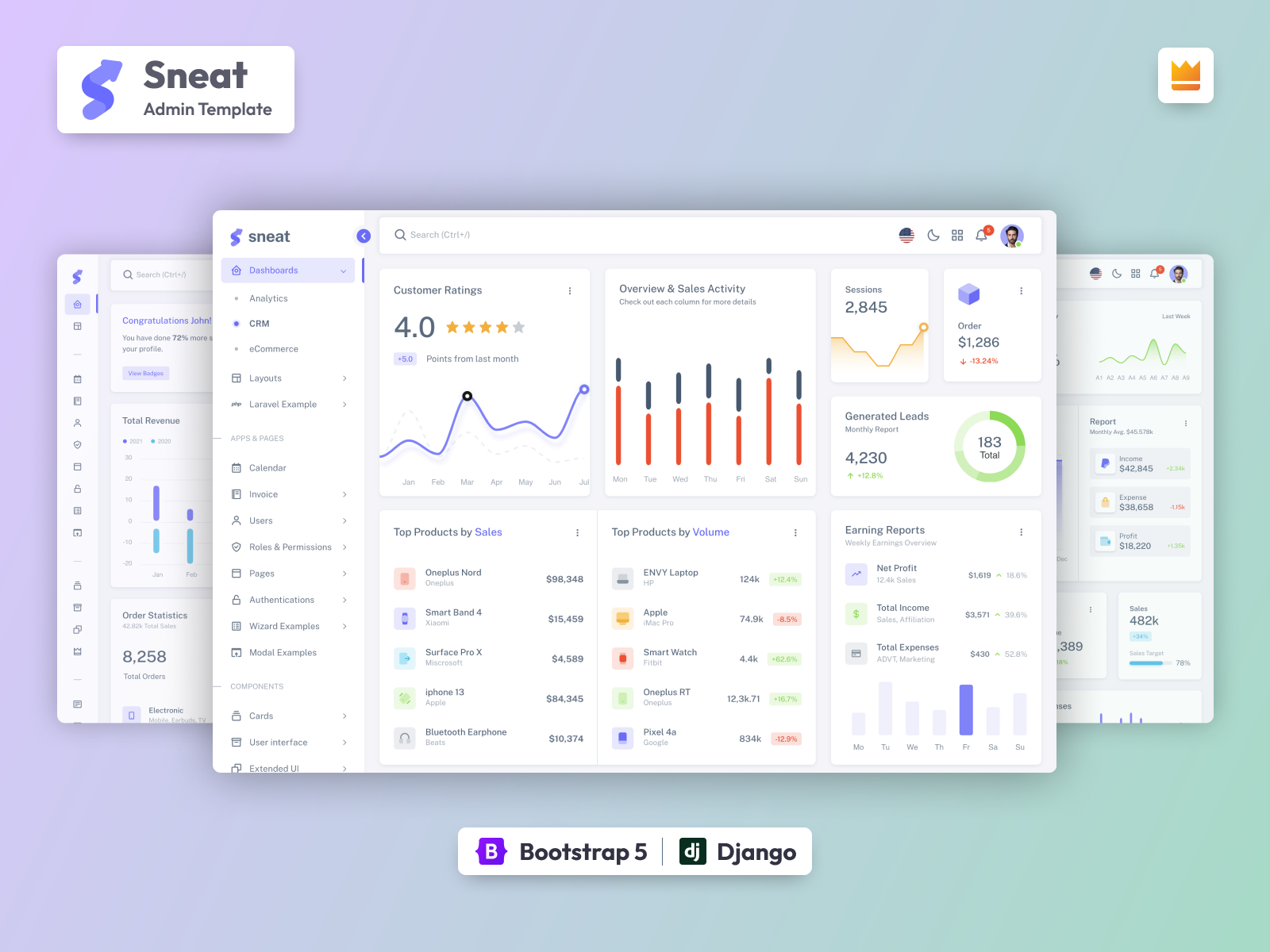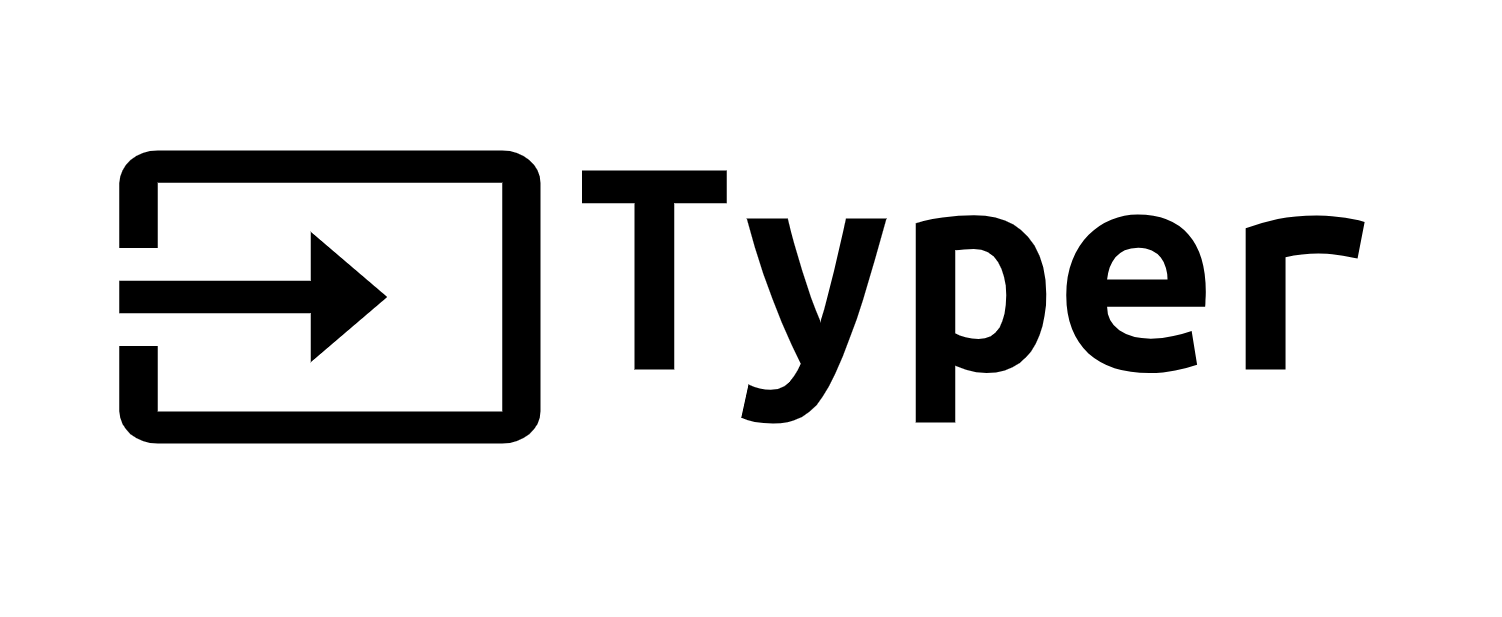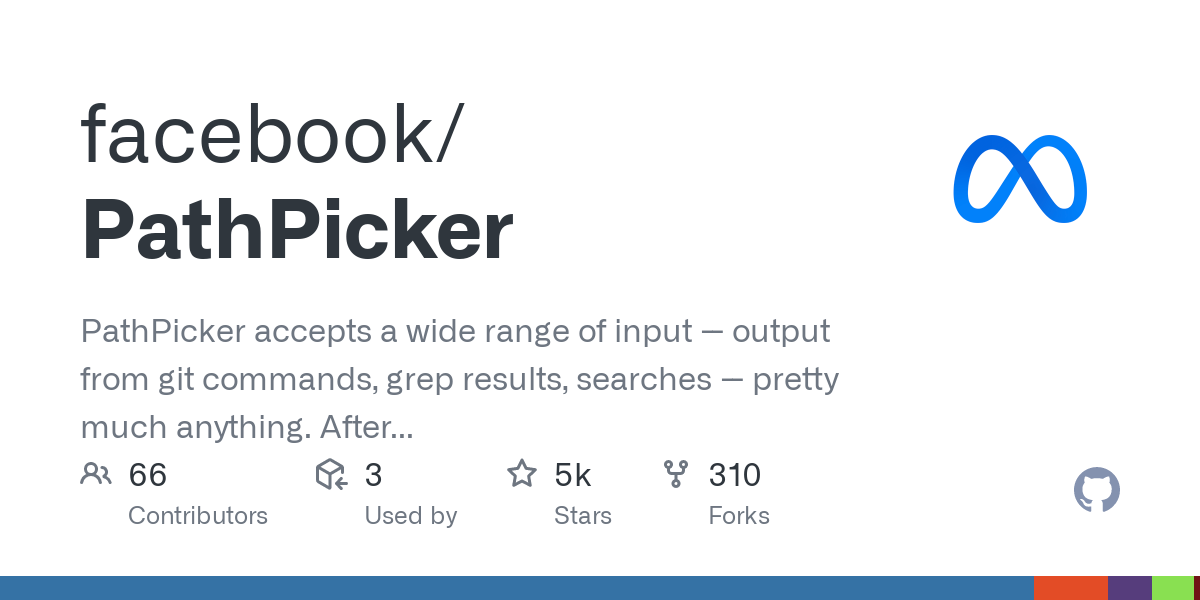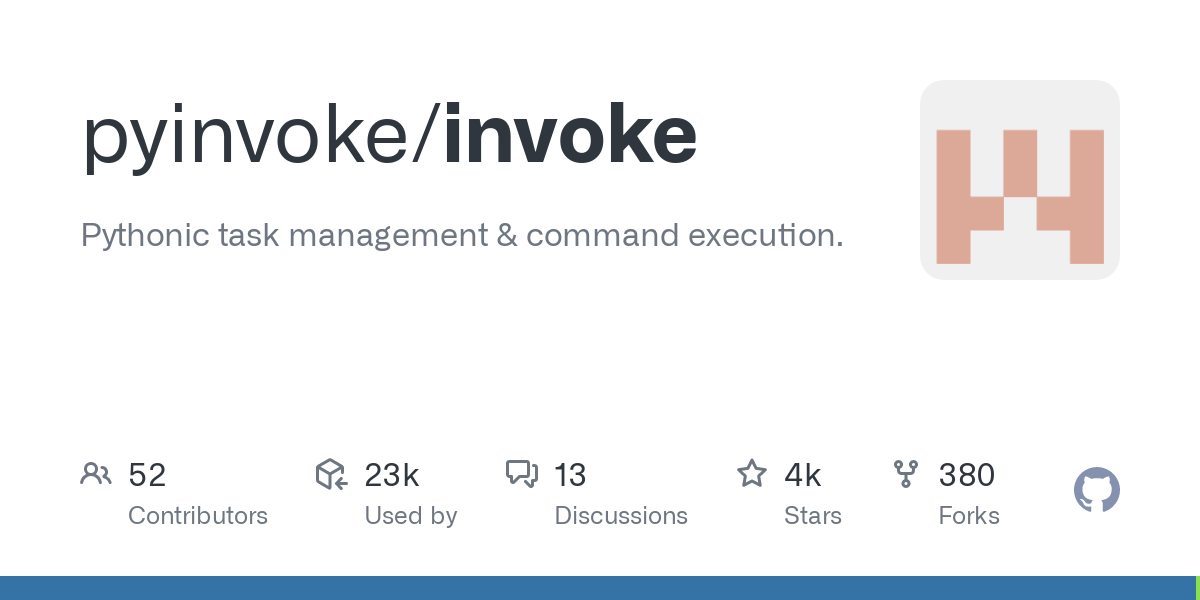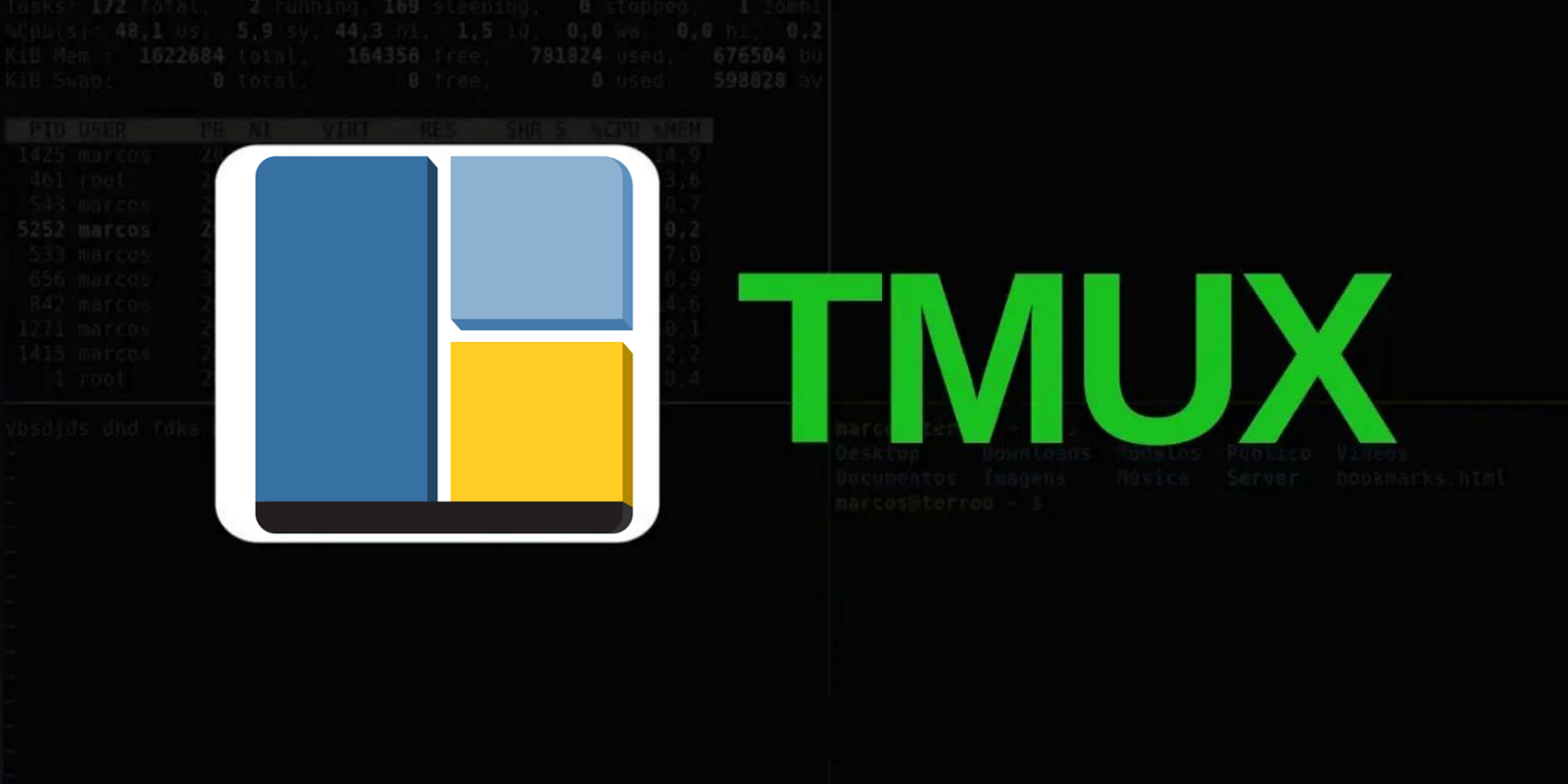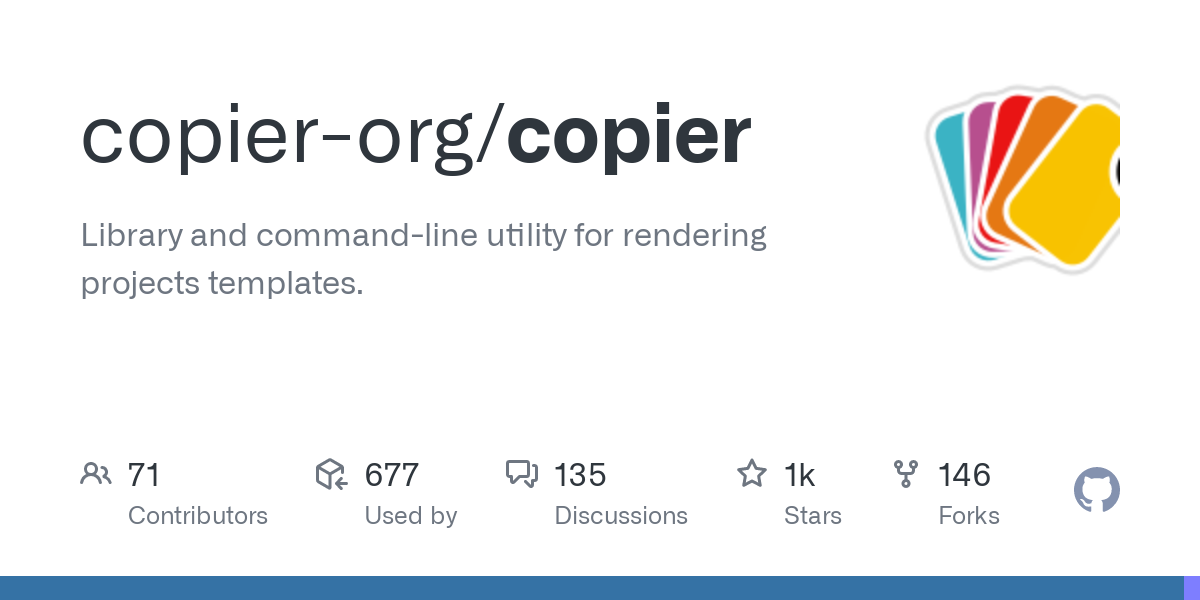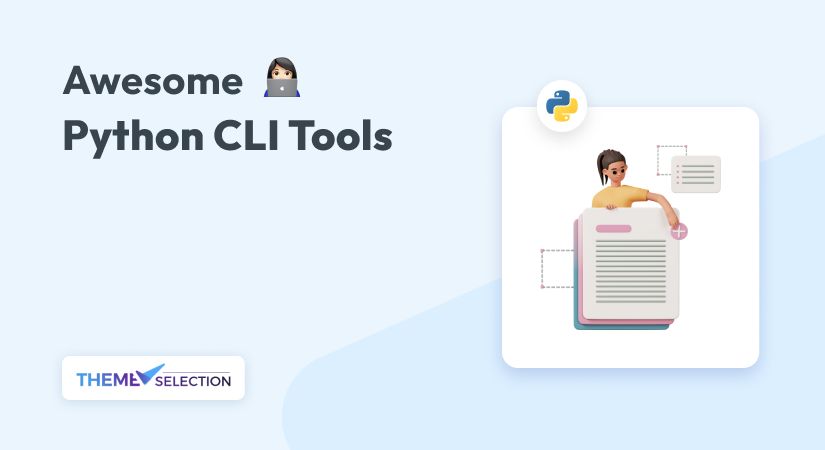
Looking for the best Python CLI Tool to speed up your development process? Then here we have collected the best CLI tools for Python available on Github. Before we start the list of Python CLI Tool Github, let’s understand what exactly is the CLI and how it can benefit you.
Table of contents
What Is a CLI Tool?
A command line interface (CLI) is a software mechanism you use to interact with your operating system using your keyboard. Another mechanism is a graphical UI (GUI), which is popular today with all applications and software systems.
CLI relies on text commands, requiring users to type specific instructions, making it efficient for experienced users. On the other hand, GUI provides a visual interface with icons and menus, offering a more intuitive experience, and making it user-friendly for those less familiar with command-based systems. Both have their merits, with CLI excelling in efficiency and GUI in accessibility, catering to diverse user preferences and needs.
Benefits and Advantages of Using CLI Tool
One major advantage of CLI is that, with practice, configuration can be far faster compared to a GUI. A user can configure interfaces, routing protocols, and access lists with a few textual commands.
Advantages of Using CLI Tools:
- Efficient command execution
- Streamlined repetitive tasks
- Resource optimization
- Scripting and automation support
- Offers precise control over system functions
Parameters to Choose the Best CLI Tool
Following are the important parameters to consider while choosing the best CLI Tool
- Compatibility: Ensure it works with your operating system and software.
- Ease of Use: User-friendly interface and clear documentation.
- Community Support: Active community for troubleshooting and updates.
- Functionality: Meets specific needs and supports required tasks.
While working on Python projects, you can also consider using the Django Admin Template to speed up the development process with ease.
For instance, check the Sneat Bootstrap Django Admin Template. It is one of the most developer-friendly and easy-to-use admin templates for Django projects.
Furthermore, you can also use this innovative admin panel template to create eye-catching, high-quality, and high-performing Web Applications. Besides, your apps will be completely responsive, ensuring they look stunning and function flawlessly on desktops, tablets, and mobile devices.
Features:
- Built with Django 5
- Using CSS Framework Bootstrap 5
- Docker for Faster Development
- Vertical and Horizontal layouts
- Default, Bordered & Semi-dark themes
- Light, Dark, and System mode support
- Internationalization/i18n & RTL Ready
- Python-Dotenv: Environment variables
- Theme Config: Customize our template without a sweat
- 5 Dashboard
- 10 Pre-Built Apps
- 15+ Front Pages and many more.
Also, available in React Dashboard version:

The Best Python CLI Tool GitHUb
A Python CLI (Command Line Interface) tool is a program written in the Python programming language that interacts with users through the command line. It allows users to input commands and parameters to execute specific functions or tasks.
Besides, Python CLI tools are versatile and can be employed for various purposes, such as automation, data processing, or managing system tasks, providing a flexible and powerful way to interact with software and systems.
Here we will discuss the top 10 Python CLI Tools. Let’s check them now:
TheF*ck

“The F*ck” is a Python CLI tool GitHub designed to correct your previous command-line mistakes effortlessly. By simply typing “fuck” followed by pressing enter, the tool analyzes the last command’s error and suggests corrections.
Besides, it adds a humorous yet practical touch to the command-line experience, making it a favorite among developers who appreciate efficiency with a touch of humor. Integrating seamlessly into your workflow, This Python CLI Tool simplifies the process of fixing those frustrating command-line errors with a single, easy-to-remember command.
Check the installation guide for better guidance.
Requirements:
- python (3.5+)
- pip
- python-dev
Features:
- Command-line error correction
- User-friendly interface
- Shell compatibility
- Extensible with custom rules
- Humorous touch
Best Suitable For:
Best for developers and system administrators who want a quick and amusing solution for correcting command-line mistakes. This Python CLI Tool GitHub has a user-friendly approach and integration into the command-line environment making it a valuable tool for those who prioritize efficiency without sacrificing a bit of humor. Whether you’re a seasoned developer or just starting with the command line, This Python CLI Tool adds a playful yet powerful dimension to the way you handle errors, making it a favorite among users who appreciate a touch of levity in their workflow.
Httpie CLI

HTTPie (pronounced aitch-tee-tee-pie) is a command-line HTTP client. Its goal is to make CLI interaction with web services as human-friendly as possible. HTTPie is designed for testing, debugging, and generally interacting with APIs & HTTP servers. The HTTP & https commands allow for creating and sending arbitrary HTTP requests. They use simple and natural syntax and provide formatted and colorized output.
Requirements:
- python (3.7+)
Features:
- Expressive and intuitive syntax
- Formatted and colorized terminal output
- Built-in JSON support
- Forms and file uploads
- HTTPS, proxies, and authentication
- Arbitrary request data
- Custom headers
- Persistent sessions
wget-like downloads
Best Suitable For:
HTTPie is best suitable for developers, system administrators, and anyone involved in web development who values simplicity and efficiency in making HTTP requests. Its user-friendly command-line interface, clear syntax, and vibrant highlighting make it an excellent choice for those who want a straightforward and intuitive tool for interacting with APIs and web services. Regardless of your experience level, HTTPie’s versatility and ease of use make it a valuable companion for handling HTTP requests and responses with clarity and effectiveness
Cookiecutter
Cookiecutter, a powerful Python CLI tool Github, simplifies project templating with its intuitive and flexible approach. Developers use Cookiecutter to create projects from predefined templates, reducing the setup time and ensuring consistent project structures.
Besides, with support for various template sources and customization options, Cookiecutter is a go-to tool for those who want to kickstart their projects with a well-organized and standardized foundation. Additionally, its ease of use and ability to generate projects across different programming languages make it a versatile choice for developers aiming for efficiency and consistency in their project workflows.
Requirements:
- Python 3.7+
Features:
- Cross-Platform compatibility
- User-Friendly: No Python knowledge is required.
- Versatile: Compatible with Python 3.7 to 3.11.
- Multi-Language Support
Best Suitable For:
Cookiecutter is best suitable for developers and teams who seek an efficient and standardized way to initiate projects. Furthermore, its project templating capabilities are particularly beneficial for those who want to reduce the setup time and ensure a consistent structure across their projects. Regardless of any programming language, Cookiecutter’s versatility makes it an ideal CLI tool for Python for anyone who wants streamlined project initiation and the ability to maintain a standardized project structure

Typer
It is a modern Python CLI library for building command-line applications. It simplifies the process of creating interactive command-line interfaces by leveraging Python-type 3.6+ hints. With Typer, you can easily define and document your command-line interface using Python functions and type annotations.
This makes the code more readable and reduces the boilerplate typically associated with building command-line applications. Typer is especially useful for developers who want to create command-line tools with a clean and concise syntax.
Features:
- Intuitive to write
- Great editor support
- Less time debugging
- Designed to be easy to use and learn
- Easy to use
- Automatic help, and automatic completion for all shells.
- Minimize code duplication
- Multiple features from each parameter declaration
- Fewer bugs, and much more.
Best Suitable For:
Typer provides features like automatic help generation, tab-completion support, and validation of input arguments based on type hints. It’s a powerful tool for building efficient and user-friendly command-line applications in Python.
Howdoi
Howdoi, a Python CLI tool, is a developer’s best friend when it comes to finding quick answers to coding queries. With its simple yet powerful interface, developers can easily retrieve solutions to programming questions directly from the command line.
Besides, Howdoi scrapes popular Q&A platforms like Stack Overflow and presents concise code snippets as responses. This tool is invaluable for developers seeking immediate and practical solutions, enhancing their coding efficiency and problem-solving capabilities with just a few keystrokes.
Features:
- Quick answers to coding queries
- Simple and powerful interface
- Retrieves solutions from Stack Overflow
- Presents concise code snippets
- Enhances coding efficiency
Best Suitable For:
Howdoi is best suitable for developers who need quick and practical answers to coding questions while working on Python projects. Its simple and efficient interface, coupled with the ability to fetch code snippets from Stack Overflow, makes it an ideal tool for developers facing coding challenges and seeking immediate solutions directly from the command line. This tool significantly benefits those who prioritize speed and convenience in accessing community-driven knowledge for a smoother and more efficient coding experience.
PathPicker
Facebook PathPicker is a simple command line tool that solves the perpetual problem of selecting files out of bash output. PathPicker will:
- Parse all incoming lines for entries that look like files1
- Present the piped input in a convenient selector UI
- Allow you to either
- Edit the selected files in your favorite
<strong>$EDITOR</strong> - Execute an arbitrary command with them
- Edit the selected files in your favorite
PathPicker accepts a wide range of <strong>input -- output</strong> from git commands, grep results, searches -- pretty much anything.
After parsing the input, PathPicker presents you with a nice UI to select which files you’re interested in. After that, you can open them in your favorite editor or execute arbitrary commands.
Requirements:
- Python 3.
Features:
- Allows you to execute arbitrary commands.
- Accepts a wide range of inputs
Invoke
Invoke is a Python library for managing shell-oriented subprocesses and organizing executable Python code into CLI-invokable tasks. It draws inspiration from various sources (make/rake, Fabric 1.x, etc) to arrive at a powerful & clean feature set. You can also consider using the Python data validation library as well.
This Python CLI tool provides a clean, high-level API for running shell commands and defining/organizing task functions from a tasks.py file. It also inherits an emphasis on minimal boilerplate for common patterns and the ability to run multiple tasks in a single invocation.
Invoke is equally at home embedded in your own Python code or a REPL. For example, you can use Invoke to:
- Install dependencies
- Build documentation
- Run tests
- Deploy code
Requirements:
- Python (2.7 and 3.4+)
Features:
- Reduced boilerplate
- Improved Organization
- Increased flexibility
- Improved productivity
- Manage remote servers
Best Suitable For:
If you are looking for a way to automate your tasks, then Invoke is a great option. It is a powerful, flexible, and easy-to-use tool that can save you a lot of time and effort.
Tmuxp
Tmuxp, a Python CLI tool, redefines the management of terminal sessions and window layouts with its powerful features. Tailored for developers who work with multiple terminal panes, Tmuxp allows users to define and organize their terminal environment in a configuration file. This enables the quick recreation of complex layouts and setups, enhancing productivity and workflow consistency.
With support for session persistence and easy sharing of configurations, Tmuxp is an indispensable tool for those who demand control and efficiency in their terminal-based development environment.
Requirements:
Features:
- Terminal session and window layout management
- Configuration-driven approach
- Quick recreation of complex setups
- Session persistence for workflow continuity
- Easy sharing of configurations
Best Suitable For:
Tmuxp is best suitable for developers and system administrators who work with complex terminal workflows and seek efficient session management. Its ability to define and organize terminal layouts through configuration files makes it ideal for those who want to recreate intricate setups quickly. Tmuxp’s features are especially beneficial for individuals or teams who value persistence across sessions and the ability to share configurations, providing a customizable and productive terminal environment for streamlined development and system administration tasks.
Doitlive
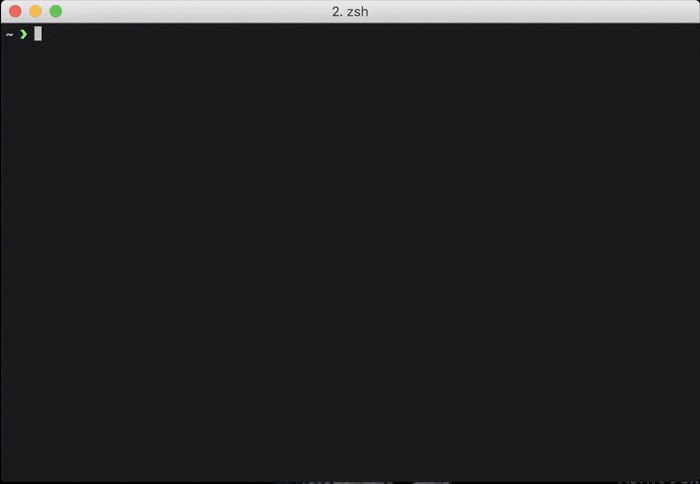
Doitlive is a Python CLI tool for live presentations in the terminal. Additionally, it reads a file of shell commands and replays the commands in a fake terminal session as you type random characters. Besides, this Python CLI tool also injects a dynamic and live element into presentations and demonstrations by allowing users to run shell commands in a scripted, interactive manner.
Moreover, tailored for developers, educators, and presenters, Doitlive enables the creation of live demos with a pre-defined sequence of commands. Furthermore, this not only adds a professional touch to presentations but also ensures accuracy and consistency in showcasing command-line workflows.
Requirements:
- Python 3.8 or newer
Features:
- Live and scripted command-line presentations
- Accurate and consistent demonstration of workflows
- Support for themes and customization
- Interactive and engaging command execution
Best Suitable For:
Doitlive is particularly valuable for those who seek to enhance the visual appeal of their presentations while maintaining a focus on clarity and precision. Besides, with support for themes and customization, Doitlive empowers users to elevate their command-line demonstrations with style and precision. Additionally, it adds a layer of professionalism and engagement to your command-line sessions.
Copier
Copier, a Python CLI tool, streamlines project templating with user-friendly features. It enables quick project creation by replicating templates effortlessly. Furthermore, Copier’s template inheritance system fosters modular and reusable project structures. Additionally, with support for variables, prompts, and custom actions during generation, it offers flexibility and efficiency, ensuring a consistent and swift project setup.
- Works with local paths and Git URLs.
- Your project can include any file and Copier can dynamically replace values in any kind of text file.
- It generates a beautiful output and takes care not to overwrite existing files unless instructed to do so.
Requirements:
- Python 3.8 or newer.
- Git 2.7 or newer
Features:
- Project templating and generation
- Template inheritance for modular structures
- Support for variables and prompts
- Custom actions during project generation
- User-friendly interface for accessibility
bEST SUITABEL fOR:
Copier is best for developers who want a versatile solution for quick and modular project setups. Besides, its user-friendly interface and support for variables and prompts make it accessible for all levels of developers, providing efficiency and customization during project generation. Even if you’re starting a new project or replicating structures, Copier smoothens the process for swift and consistent results.
Conclusion:
In conclusion, the collection of Python CLI tools offers a diverse array of solutions, catering to the specific needs of developers, system administrators, and presenters alike. From enhancing the efficiency of command-line workflows to simplifying project templating and generation, these tools demonstrate the power of Python in streamlining various tasks.
Whether seeking quick answers with tools like Howdoi or ensuring consistency in project setups with Copier, Python CLI tools provide accessible, efficient, and often customizable solutions for a wide range of scenarios. As the Python ecosystem continues to evolve, these tools exemplify the language’s versatility in addressing the dynamic demands of coding, system management, and interactive presentations.
Hope this collection helps you with choosing the best Python CLI Tools.

